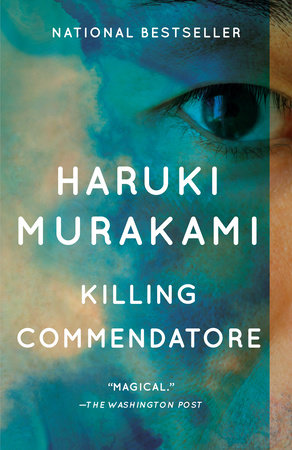I’ve read more fiction in 2020 than in any other year in recent memory — maybe the escapist urge amidst all the insanity that’s going on in the world.
Fiction is good any year, of course. I recently came across this Marilynne Robinson quote in the New Yorker profile of her this week: “All literature is acknowledgment. Literature says this is what sadness feels like and this is what holiness feels like, and people feel acknowledged in what they already feel.”
Two recent longer novels I read:
 1. Americanah by Chimamanda Ngozi Adichie. A wonderful, engrossing story about two Nigerian immigrants to America and the UK. A love story. A story of assimilation. A story about national identity. The plot is easy to follow, the ideas raised are deep, and the sentences are often gorgeous. I loved it. Separately, I want to learn more about why the Nigerian diaspora in America is so successful.
1. Americanah by Chimamanda Ngozi Adichie. A wonderful, engrossing story about two Nigerian immigrants to America and the UK. A love story. A story of assimilation. A story about national identity. The plot is easy to follow, the ideas raised are deep, and the sentences are often gorgeous. I loved it. Separately, I want to learn more about why the Nigerian diaspora in America is so successful.
Some Kindle highlights from Americanah:
She did not tell him this, because it would hurt him to know she had felt that way for a while, that her relationship with him was like being content in a house but always sitting by the window and looking out.
Kosi led the way around the room, hugging men and women she barely knew, calling the older ones “ma” and “sir” with exaggerated respect, basking in the attention her face drew but flattening her personality so that her beauty did not threaten.
There was something immodest about her modesty: it announced itself.
Ifemelu told her about the vertigo she had felt the first time she went to the supermarket; in the cereal aisle, she had wanted to get corn flakes, which she was used to eating back home, but suddenly confronted by a hundred different cereal boxes, in a swirl of colors and images, she had fought dizziness. She told this story because she thought it was funny; it appealed harmlessly to the American ego.
Her mother asked breezy questions and accepted breezy replies. “Everything is going well?” and Ifemelu had no choice but to say yes.
There was something in him, lighter than ego but darker than insecurity, that needed constant buffing, polishing, waxing.
It puzzled him that she did not mourn all the things she could have been. Was it a quality inherent in women, or did they just learn to shield their personal regrets, to suspend their lives, subsume themselves in child care?
With his close friends, she often felt vaguely lost. They were youngish and well-dressed and righteous, their sentences filled with “sort of,” and “the ways in which”; they gathered at a bar every Thursday, and sometimes one of them had a dinner party, where Ifemelu mostly listened, saying little, looking at them in wonder: were they serious, these people who were so enraged about imported vegetables that ripened in trucks?
Fred mentioned Stravinsky and Strauss, Vermeer and Van Dyck, making unnecessary references, quoting too often, his spirits attuned across the Atlantic, too transparent in his performance, too eager to show how much he knew of the Western world. Ifemelu listened with a wide internal yawn.

Killing Commendatore is vintage Murakami. The pace is slow here. The language mostly lovely. Descriptions unfold in detail — houses, cars, people. Murakami captures the ennui of his characters. Surrealism abound: Talking spirits, portals that transport you to a different world, and so on. In his descriptions of female characters, there’s an obsession with breasts that’s extreme even by Murakami standards (known as he is for attempting to channel a Japanese male obsession with breasts, which is how a friend explained it).
From a review of the book that captures the intention of this novel pretty well:
….[it] express the truth that despite how rational and stable we may be, our lives are actually out of our control. We do not choose whom we love, or who will love us, or who will hire us, or any of the most important aspects of our lives.
And not only are we not in control, there is much more going on than we can see, know, or understand. That so much that happens is inexplicable seems miraculous. Murakami writes, “There are channels through which reality can become unreal. Or unreality can enter the realm of the real.”
By writing about metaphors and ideas, by ringing bells underground and animating two-foot-tall men, by having the desperate desires of others intrude on the simplest of plans and a whole lot else, Murakami is reminding us that the world is more enchanted than we might think. And an enchanted world is a wonderful place to live.
Special shoutout to the voice actor of the audiobook version of Killing Commendatore, Kirby Heyborne, as he was spectacular. He nailed the different characters’ voices; it felt like you were really listening to a movie. At 700+ pages, this one is probably 200 pages too long. But if your mood is right, you can settle in and enjoy this one. Especially if you have a long road trip ahead of you.
I love both these books!